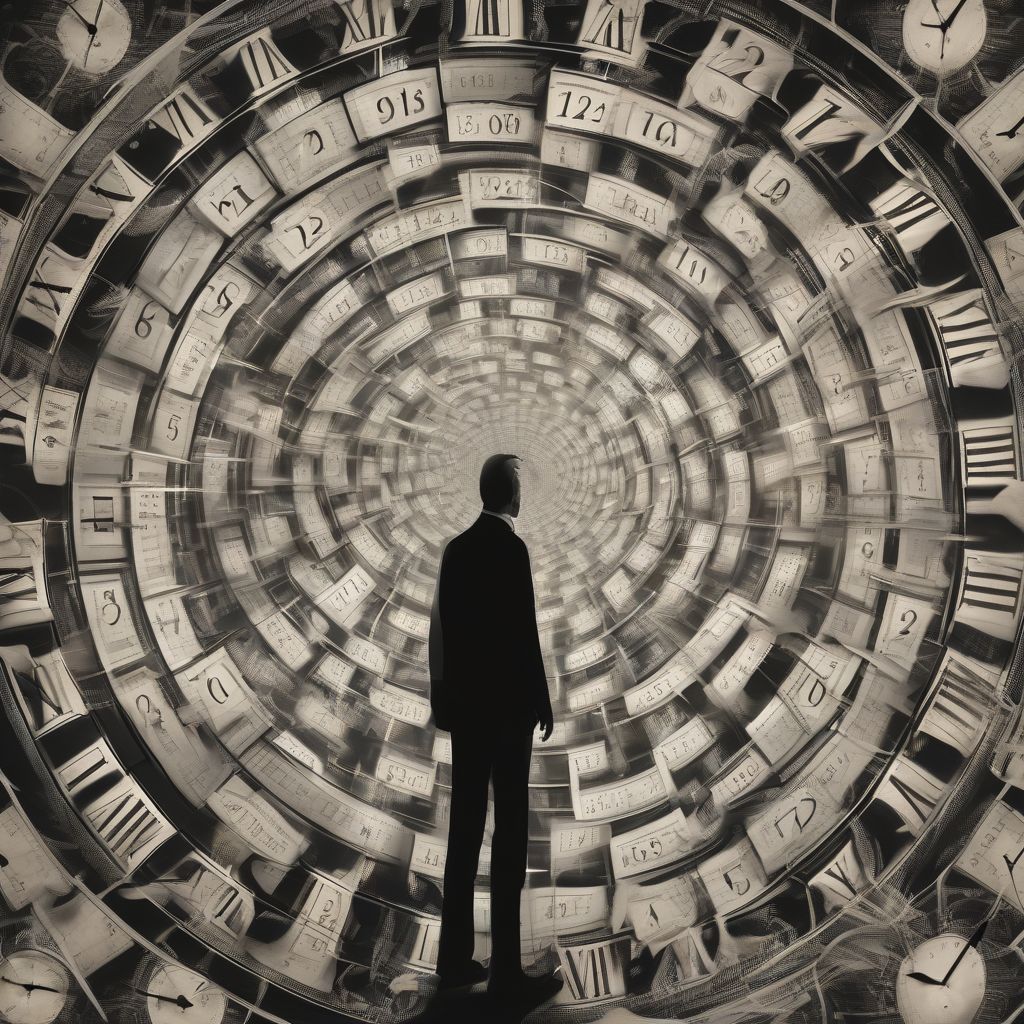Have you ever dreamt of leaping through time like a character from your favorite science fiction novel? Time travel, a concept both exhilarating and perplexing, has captivated audiences for generations. But beyond the sheer excitement, time travel in science fiction offers a rich tapestry of themes and narrative possibilities that can be analyzed and appreciated on a deeper level.
This article will equip you with the tools to deconstruct the use of time travel in science fiction, enabling you to uncover hidden layers of meaning and engage with these stories in a more profound way.
Understanding the Mechanics: What Kind of Time Travel Are We Dealing With?
Just like a chef needs to know their ingredients, understanding how time travel functions in a specific story is crucial.
Common Time Travel Tropes:
- The Fixed Timeline: In this model, the past is immutable. Any attempt to alter it, even if seemingly successful, ultimately leads back to the predetermined present.
- The Multiverse Theory: This approach proposes that every action creates a new, branching timeline. Time travelers don’t change their past; they create an alternate reality.
- The Dynamic Timeline: Here, the past is malleable. Actions have consequences, and changes ripple through time, altering the present and future.
Once you identify the type of time travel employed, you can better understand the author’s choices and the potential implications for the characters and plot.
Time Travel as a Plot Device: More Than Just Moving the Story Forward
While time travel can be a fantastic tool for moving a story forward, its purpose often extends far beyond simple narrative convenience.
Consider these possibilities:
- Exploring Cause and Effect: Time travel can create compelling “what if” scenarios. Stories might explore the butterfly effect, demonstrating how seemingly small actions in the past can have significant consequences in the future.
- Examining History and Social Commentary: By transporting characters to different periods, authors can provide commentary on social issues, political climates, or historical events, prompting reflection on our present.
- Character Development and Internal Conflict: The act of traveling through time can force characters to confront their past, their beliefs, and their own mortality.
By recognizing how time travel serves the narrative beyond just the mechanics, we gain a richer understanding of the author’s intentions and the story’s deeper themes.
Thematic Resonance: What Does Time Travel Really Tell Us?
Just like a perfectly prepared meal offers more than just sustenance, time travel narratives often serve up complex themes that linger long after the story ends.
Common Themes Explored Through Time Travel:
- The Nature of Time: Is time linear, cyclical, or something else entirely? Stories often grapple with the philosophical implications of time and our perception of it.
- Free Will vs. Determinism: Can we change our destiny, or are we bound by a predetermined path? Time travel narratives frequently explore this timeless philosophical debate.
- The Consequences of Tampering with the Past: Stories often caution against interfering with the natural order, highlighting the potential dangers and ethical dilemmas of altering history.
By identifying these underlying themes, we can connect with the story on a more profound level, prompting reflection on our own lives and the world around us.
 Time Travel Paradox
Time Travel Paradox
The Importance of Context: Considering the Author’s Background and the Story’s Historical Setting
Just as a meal can be influenced by cultural traditions, understanding the context surrounding a science fiction story enhances our interpretation.
Factors to Consider:
- The Author’s Background and Beliefs: An author’s personal experiences, philosophical leanings, and social context can influence their approach to time travel.
- The Historical Context of the Story’s Creation: Social and political climates, technological advancements, and cultural anxieties present at the time of writing can all shape a story’s themes and messages.
By placing the story within its proper context, we gain a deeper appreciation for the author’s intentions and the story’s relevance to our own time.
Don’t Be Afraid to Engage: Asking Questions and Drawing Your Own Conclusions
Analyzing time travel narratives is not about finding the “right” answer but rather about engaging in a thought-provoking exploration.
Ask yourself these questions:
- What are the implications of the specific time travel rules established in the story?
- How does time travel serve the plot and character development?
- What themes or messages are conveyed through the use of time travel?
- How does the story’s historical context inform its themes?
By actively engaging with these questions and forming your own interpretations, you’ll discover a deeper appreciation for the intricate and imaginative world of time travel in science fiction.
Conclusion: Embracing the Journey Through Time
Analyzing the use of time travel in science fiction stories is a rewarding endeavor, enriching our understanding of the genre and sparking reflection on our own relationship with time.
Remember, there are no right or wrong answers, only opportunities for deeper exploration and engagement. So, next time you encounter a time-bending tale, don’t just enjoy the ride – delve deeper, ask questions, and uncover the hidden layers of meaning that make time travel narratives so captivating.
What are your favorite examples of time travel in science fiction, and what themes do they explore? Share your thoughts and engage with the ongoing conversation about this fascinating topic!
[amazon bestseller=”Time Travel Science Fiction”]
